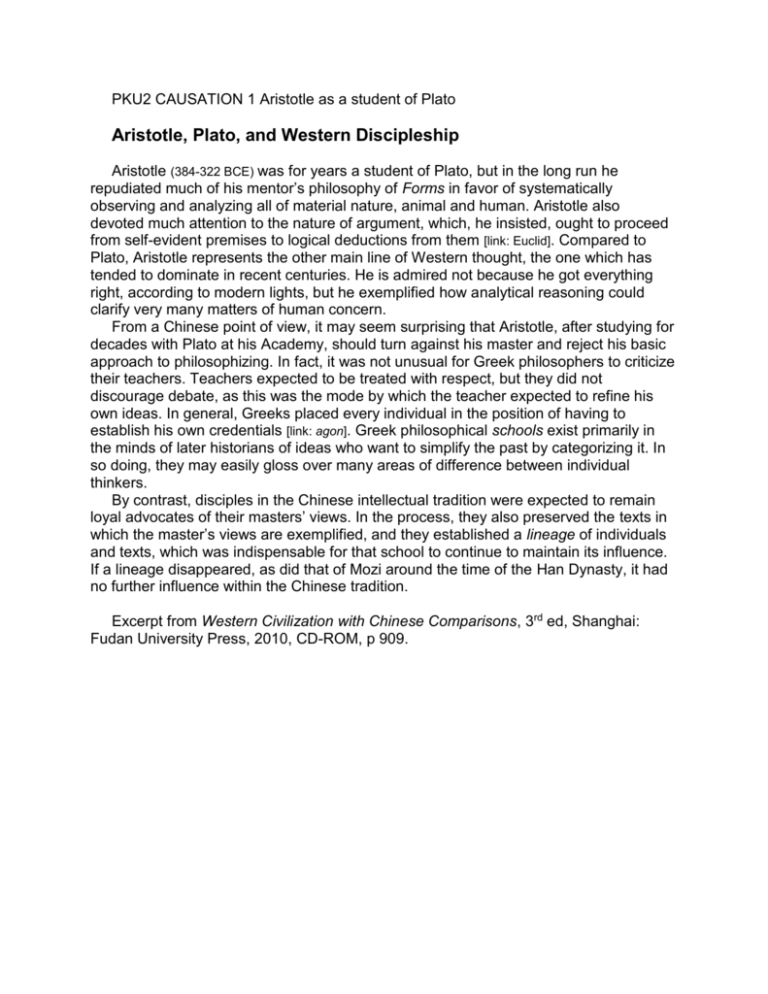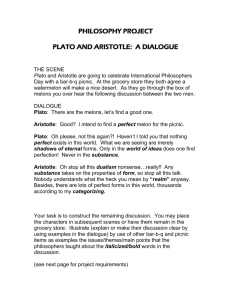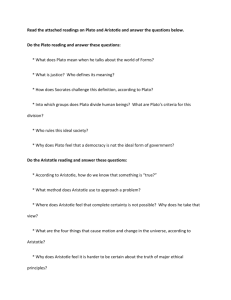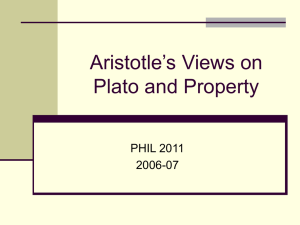Aristotle, Plato, and Western Discipleship
advertisement

PKU2 CAUSATION 1 Aristotle as a student of Plato Aristotle, Plato, and Western Discipleship Aristotle (384-322 BCE) was for years a student of Plato, but in the long run he repudiated much of his mentor’s philosophy of Forms in favor of systematically observing and analyzing all of material nature, animal and human. Aristotle also devoted much attention to the nature of argument, which, he insisted, ought to proceed from self-evident premises to logical deductions from them [link: Euclid]. Compared to Plato, Aristotle represents the other main line of Western thought, the one which has tended to dominate in recent centuries. He is admired not because he got everything right, according to modern lights, but he exemplified how analytical reasoning could clarify very many matters of human concern. From a Chinese point of view, it may seem surprising that Aristotle, after studying for decades with Plato at his Academy, should turn against his master and reject his basic approach to philosophizing. In fact, it was not unusual for Greek philosophers to criticize their teachers. Teachers expected to be treated with respect, but they did not discourage debate, as this was the mode by which the teacher expected to refine his own ideas. In general, Greeks placed every individual in the position of having to establish his own credentials [link: agon]. Greek philosophical schools exist primarily in the minds of later historians of ideas who want to simplify the past by categorizing it. In so doing, they may easily gloss over many areas of difference between individual thinkers. By contrast, disciples in the Chinese intellectual tradition were expected to remain loyal advocates of their masters’ views. In the process, they also preserved the texts in which the master’s views are exemplified, and they established a lineage of individuals and texts, which was indispensable for that school to continue to maintain its influence. If a lineage disappeared, as did that of Mozi around the time of the Han Dynasty, it had no further influence within the Chinese tradition. Excerpt from Western Civilization with Chinese Comparisons, 3rd ed, Shanghai: Fudan University Press, 2010, CD-ROM, p 909.











